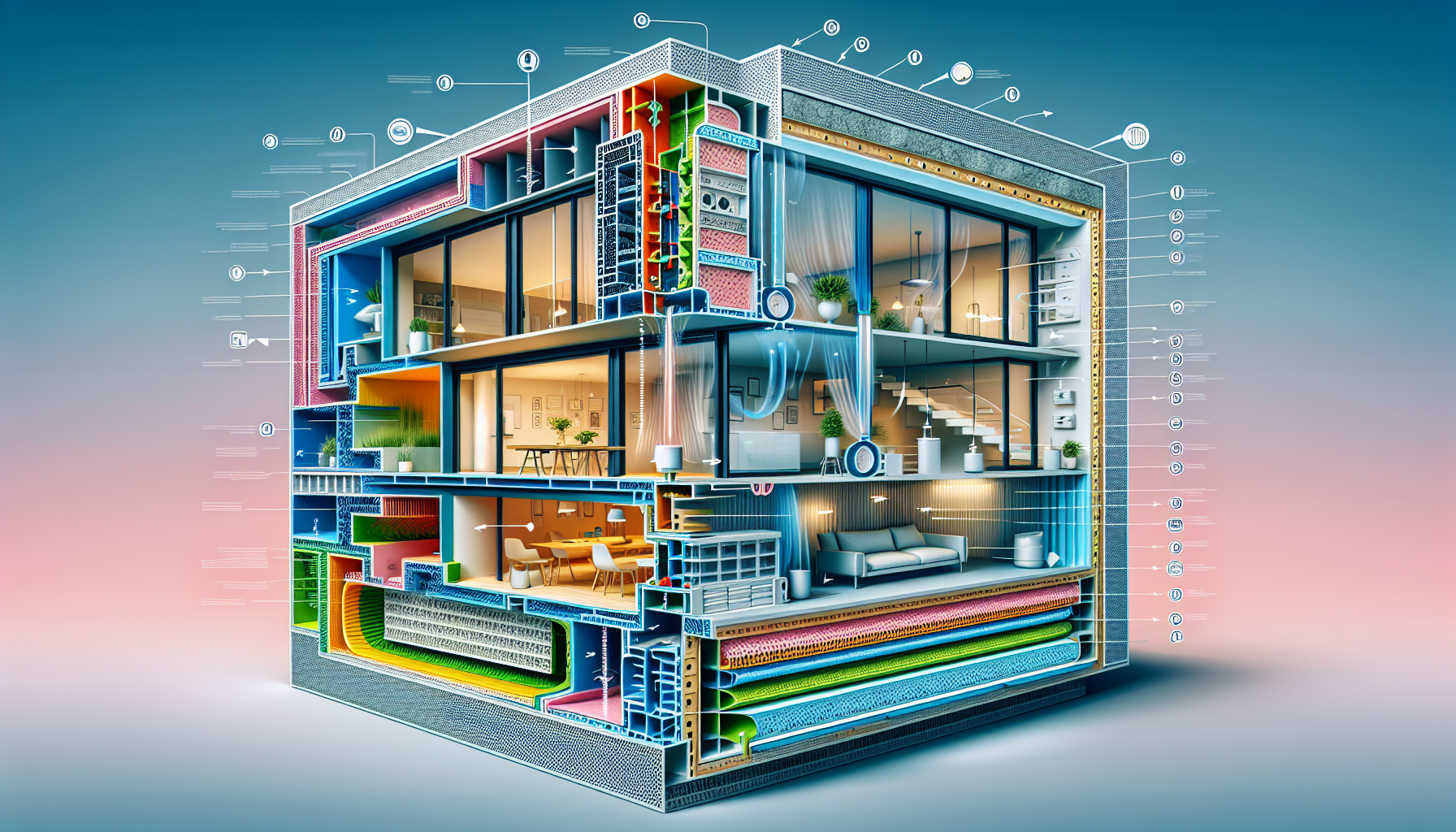Address
Energy Incentives, INC
3517 W. Canal Dr.
Kennewick, WA. 99336
Work Hours
Monday to Friday: 7AM - 7PM
Weekend: Day off
Address
Energy Incentives, INC
3517 W. Canal Dr.
Kennewick, WA. 99336
Work Hours
Monday to Friday: 7AM - 7PM
Weekend: Day off

Scheduling commercial air barrier testing for your building in Washington State is crucial for ensuring energy efficiency, indoor air quality, and regulatory compliance. However, making mistakes in this process can lead to unnecessary expenses, failed tests, and compliance issues. At Energy Incentives, INC, we want to help you avoid these costly pitfalls. Here’s a comprehensive guide on the common mistakes property managers make and how to avoid them.
First and foremost, it’s essential to understand that Washington State now requires commercial buildings to undergo air barrier testing. This mandate aims to enhance energy efficiency and environmental sustainability across the state. Failing to comply with these regulations can lead to fines and other penalties. Therefore, being well-informed about the testing requirements is your first step towards compliance.
Many property managers are unaware of the specific air barrier testing requirements set forth by Washington State. This lack of understanding can lead to non-compliance, resulting in penalties and additional costs. To avoid this, familiarize yourself with the state codes and regulations related to air barrier testing for commercial buildings. Knowing what’s required will ensure you are fully prepared and compliant.
Selecting an inexperienced or uncertified testing service can be a costly error. Air barrier testing requires specialized knowledge and equipment, and only certified professionals can provide accurate results. At Energy Incentives, INC, our team is equipped with the necessary certifications, including Energy Star Rater and PTCS certification. When choosing a testing service, always verify their credentials and experience to ensure you receive reliable and accurate results. To ensure a smooth process, check out our Ultimate Guide to Commercial Air Barrier Testing.
Proper preparation is crucial for a successful air barrier test. Common oversights, such as not closing windows and doors or failing to turn off ventilation systems, can compromise test results. To avoid this, create a checklist to ensure everything is in order before the test. This includes sealing all potential leaks, clearing obstructions, and coordinating with the testing team to confirm all preparations are complete.
Before scheduling an air barrier test, it’s important to address any obvious air leaks or structural issues. Ignoring these pre-existing problems can lead to inaccurate test results and additional costs for re-testing. Regular maintenance and inspections can help identify and fix these issues beforehand. At Energy Incentives, INC, we recommend conducting a preliminary inspection to identify and rectify any obvious problems prior to the official test.
Once the air barrier test is completed, thoroughly reviewing the results with your testing professional is essential. Understanding the data and its implications allows you to make informed decisions about necessary repairs and improvements. Our experts at Energy Incentives, INC will walk you through the results, explaining any issues identified and recommending the best course of action.
Postponing remediation work after an air barrier test can be a costly mistake. Delays can exacerbate existing problems, leading to more significant repairs and higher costs down the line. Timely action on identified issues ensures your building remains energy-efficient and compliant with state regulations. At Energy Incentives, INC, we provide comprehensive services to address any issues promptly, helping you maintain optimal building performance.
Regular follow-up tests are essential to maintaining your building’s air barrier integrity. Many property managers overlook the importance of ongoing testing, leading to deteriorating performance over time. Scheduling regular tests helps identify new issues early and ensures your building remains compliant with Washington State’s energy efficiency standards. We recommend annual or bi-annual tests to keep your building in top condition.
One of our clients, a commercial building owner in Spokane, learned the hard way about the importance of proper preparation. Initially, they chose an inexperienced testing service and failed the test due to poor preparation. After consulting with Energy Incentives, INC, they addressed the issues, prepared thoroughly, and passed the subsequent test, resulting in a 15% reduction in energy costs.
Another client in Tacoma delayed necessary repairs after their initial test, leading to mold growth and structural damage. Timely action following our recommendations not only resolved the issues but also improved tenant satisfaction and reduced long-term maintenance costs.
Avoiding these common mistakes when scheduling commercial air barrier testing can save you time, money, and headaches. By understanding the requirements, choosing an experienced testing service like Energy Incentives, INC, and preparing thoroughly, you can ensure your building remains energy-efficient, compliant, and comfortable for tenants. Schedule your air barrier test today with Energy Incentives, INC and take the first step towards a more efficient and cost-effective future. After scheduling, it’s crucial to understand your test results—learn more here.